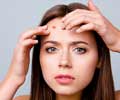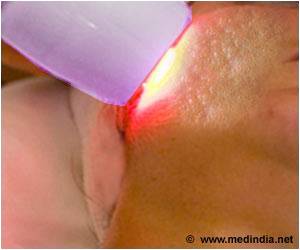Empower yourself with insights on acne myths, treatments, and self-care during Acne Awareness Month 2024
- Acne is incredibly common, affecting over 85% of teenagers and up to 50% of adults
- Acne isn't caused by poor hygiene but due to clogged pores, hormonal fluctuations, and bacteria buildup
- Acne does not spread through touch or contact
Acne Awareness Month Social Media Toolkit
Go to source).
Stress doesn't directly cause acne, but it can worsen existing breakouts. #skincare #acneawareness #medindia’
Theme for Acne Awareness Month 2024
This year's theme focuses on acne scarring, a prevalent concern for many who experience acne. The campaign aims to address misconceptions about scarring, identify risk factors, and raise awareness about prevention and management strategies.History of Acne Awareness Month
The exact origin of Acne Awareness Month is unclear. However, dermatological organizations and skincare brands have increasingly used June to promote acne awareness in recent years. This focus on acne education reflects the growing understanding of the condition's impact on physical and mental well-being.Significance of Acne Awareness Month
Acne Awareness Month plays a crucial role in:- Combating Stigma: Acne can significantly impact self-esteem and social interactions. Raising awareness helps reduce the stigma associated with acne, promoting a more accepting and supportive environment.
- Promoting Early Intervention: Early diagnosis and treatment of acne can prevent severe breakouts and minimize the risk of scarring. Acne Awareness Month encourages people to seek professional help for proper management.
- Educating the Public: Myths and misinformation about acne abound. This month provides an opportunity to educate the public about the causes, types, and effective treatment options for acne.
- Empowering Individuals: Living with acne can be challenging. Acne Awareness Month empowers individuals to understand their condition, make informed decisions about treatment, and develop healthy skincare routines.
Acne Myths vs. Truths: Separating Fact from Fiction
Acne is a common skin condition, but there's a lot of misinformation floating around. Let's clear things up with some common myths debunked and the real truths revealed:Myth 1: Dirty skin causes acne.
Truth: While good hygiene is essential, acne isn't caused by dirt. Clogged pores, hormonal fluctuations, and bacteria buildup are the real culprits. Overly harsh scrubbing can actually irritate skin and worsen breakouts.
Myth 2: Greasy food and chocolate make you break out.
Truth: Research on the direct link between specific foods and acne is inconclusive. However, some studies suggest high glycemic index foods and dairy products might play a role in flare-ups. It's best to identify any personal triggers through a food journal.
Myth 3: Stress doesn't affect acne.
Truth: Stress doesn't directly cause acne, but it can act as a trigger that worsens existing breakouts. When stressed, the body produces hormones that can stimulate oil production and inflammation, leading to acne flare-ups.
Myth 4: Popping pimples helps them go away faster.
Truth: This is a big NO! Popping pimples can worsen inflammation, increase risk of infection, and lead to scarring. It's best to leave them alone and rely on proper skincare or consult a dermatologist for extraction.
Myth 5: Only teenagers get acne.
Truth: Acne can affect people of all ages, though it's most common in teenagers due to hormonal changes. Adults can experience acne due to hormonal fluctuations, stress, or underlying conditions.
Myth 6: Getting a tan clears up acne.
Truth: While some believe sunlight can dry out skin and reduce breakouts, it's a temporary fix with negative consequences. UV rays can damage skin, worsen acne in the long run, and increase the risk of skin cancer.
Myth 7: Acne will just go away on its own.
Truth: While some mild cases might clear up on their own, it's best not to wait and see. Early diagnosis and treatment by a dermatologist can prevent severe breakouts, scarring, and emotional distress.
Conquering Acne: Practical Tips for Managing Breakouts
Acne can be frustrating, but there are steps you can take to manage breakouts and achieve clearer skin. Here are some practical tips to incorporate into your daily routine:Gentle Skincare Routine:
- Wash twice a day: Wash your face morning and night with a gentle cleanser designed for acne-prone skin. Avoid harsh scrubs or products that contain alcohol or fragrance, which can irritate your skin.
- Moisturize daily: Even oily skin needs moisture. Choose an oil-free, non-comedogenic moisturizer to prevent clogged pores.
- Don't pick or pop: Resist the urge to touch or pop pimples! This can worsen inflammation, spread bacteria, and lead to scarring.
Lifestyle Habits:
- Manage stress: Chronic stress can exacerbate acne breakouts. Practice relaxation techniques like yoga, meditation, or deep breathing to manage stress levels.
- Maintain a healthy diet: While specific foods aren't guaranteed triggers for everyone, consider keeping a food journal to identify any personal links between certain foods and breakouts. Opt for a balanced diet rich in fruits, vegetables, and whole grains.
- Get enough sleep: Aim for 7-8 hours of quality sleep each night. Sleep deprivation can disrupt hormones and contribute to breakouts.
- Wash your hair regularly: If your hair tends to be oily, wash it regularly to prevent oil transfer to your face. Avoid using greasy hair products that come in contact with your skin.
- Cleanse after sweating: After sweating during exercise or physical activity, cleanse your face immediately to remove sweat and dirt that can clog pores.
Additional Tips:
- Replace pillow cases regularly: This helps prevent the transfer of bacteria and oil from your hair and face to your skin.
- Use oil-free makeup: Opt for non-comedogenic makeup that won't clog pores. Remove all makeup thoroughly before bed.
- Clean your phone screen: Your phone comes in contact with your face throughout the day. Regularly clean your phone screen to minimize bacteria transfer.
- Don't share personal items: Avoid sharing towels, washcloths, or makeup with others, as this can spread bacteria and contribute to breakouts.
Reference:
- Acne Awareness Month Social Media Toolkit - (https://acneandrosacea.org/acne-awareness-month-2024_press/)
















